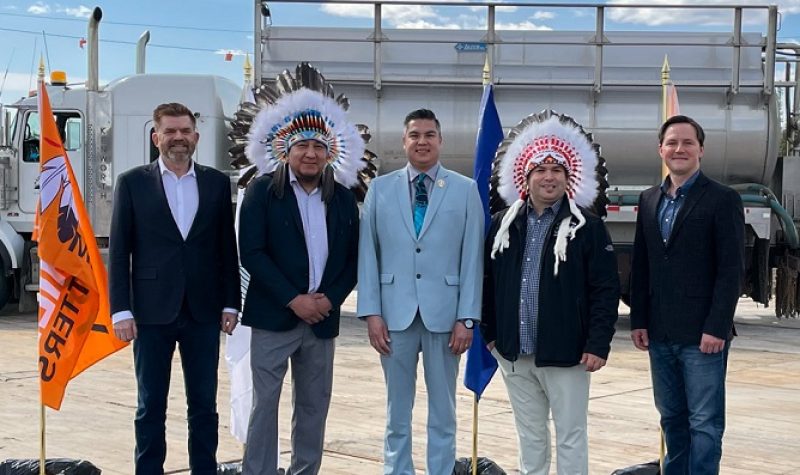Three First Nations signed an agreement to join the provincial government in extending Highway 686 by 218 km to connect Peerless Lake to Fort McMurray. The announcement was made in Red Earth Creek on Thursday.
This project connects Loon River First Nation, Peerless Trout First Nation, and Bigstone Cree Nation with Fort McMurray, and the highway will also connect the Wood Buffalo region with the northeastern part of Alberta.
As it stands, a driver from Grande Prairie would have to travel down through Athabasca, then up Highway 63 to reach Fort McMurray, adding more hours to their trip, but that is set to change.
Devin Dreeshen, Minister of Transportation and Economic Corridors, spoke at a conference at Red Earth Creek, saying that agreement includes "a $2 million commitment from the Government of Alberta to support the First Nations. That funding will go to these three nations."
"An additional $5 million will go to pre-engineering work [on the highway] going forward," Dreeshen added.
Dreeshen then explained what exactly the agreement entails.
"This establishes a committee that consists of representatives from the government and the First Nations to review the proposed Highway 686 corridor location, engage with stakeholders and to identify opportunities for communities along this new corridor."
Brian Jean, Minister of Jobs, Economy and Northern Development, also spoke at the conference about the project.
"Words are cheap, actions speak louder than words. This is a great step towards reconciliation. This investment is going to go a long way to make sure that First Nations have greater ownership and control over their economic destinies, "Jean said.
Listen to the full CFWE audio below:


